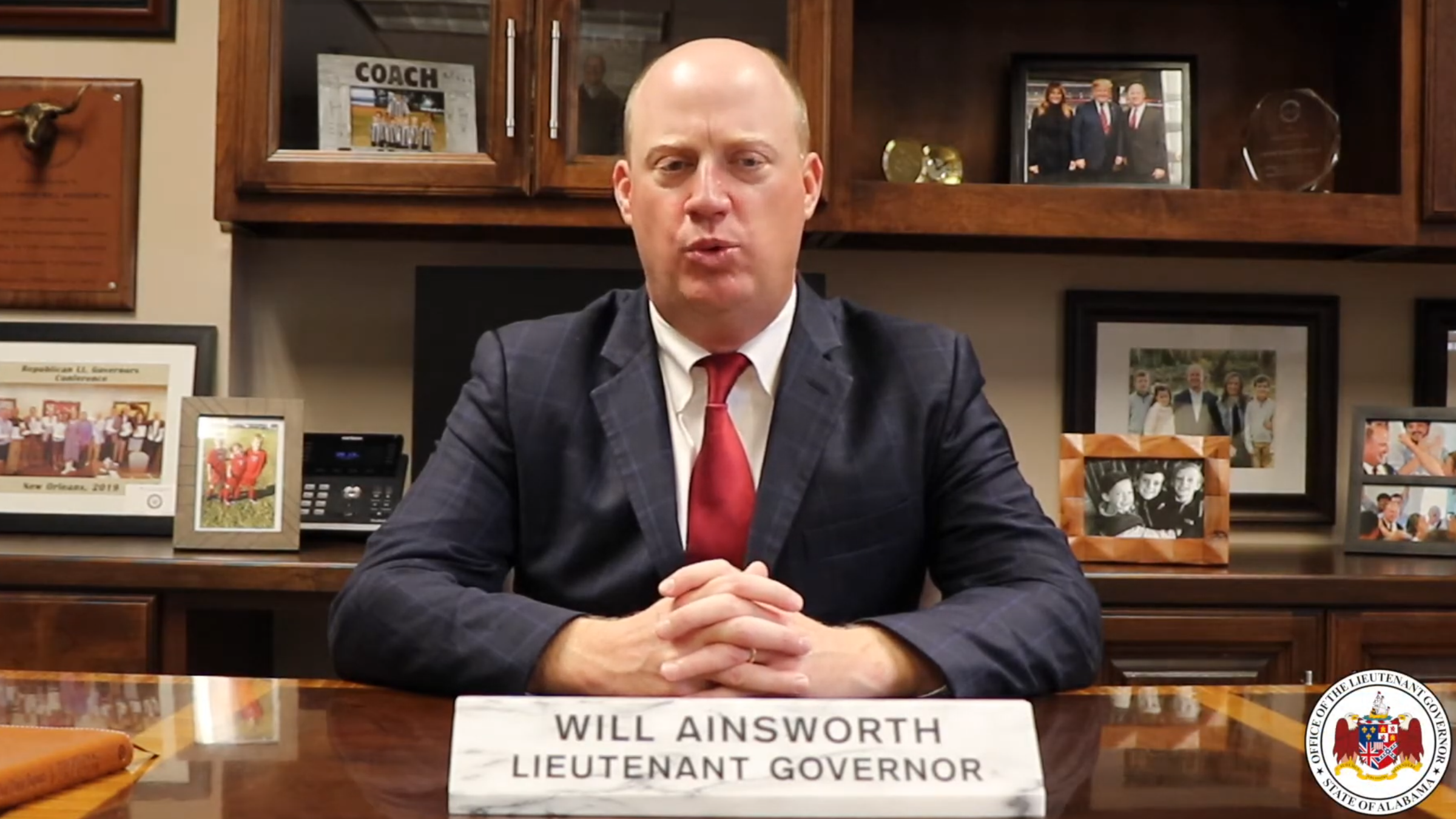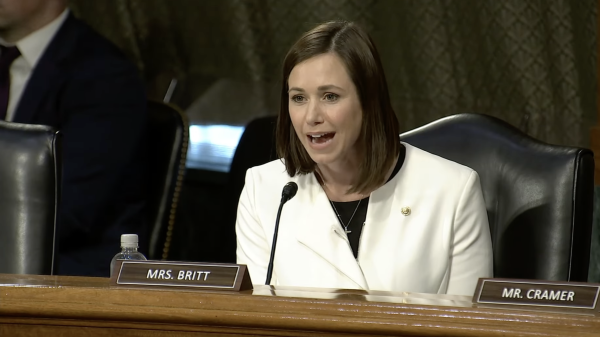The Alabama House of Representatives passed a series of bills on Thursday designed to make the state more attractive to members of the military and their families. The package of bills was originally drafted by the Alabama Military Stability Commission and are specifically designed to retain, protect and improve the federal military presence and investment across the state.
Lt. Gov. Will Ainsworth praised members of the House for their work passing the commission’s legislative recommendations. In a statement, he said:
“With passage of this legislation, Alabama has signaled to the Pentagon that we value the military bases located here and are ready for even more expansion and investment. More importantly, though, we have taken large steps toward improving the lives of our active military personnel and the families that support them.
“The federal military bases located in Alabama play an important role in our state’s economy and job climate, so protecting and expanding their footprint must always be a top priority. The cities and counties that house military bases also know their importance in providing employment opportunities and revenues in local economies.
“When the Department of Defense recently released its grading system that determined Space Command Headquarters would locate in Huntsville, one of the few areas in which Alabama scored low was professional license reciprocity for military spouses. This package, which will soon be signed into law, addresses that specific need, among others, and helps ensure that other states can no longer compete with us in any category. Providing a more welcoming environment and a better quality of life to the men and women who wear a uniform and devote their lives to protecting our nation is among the most satisfying accomplishments of my public service, and I deeply appreciate Speaker Mac McCutcheon, Pro Tem Greg Reed, the bill sponsors, the commission members, and others across Alabama who joined us in making it happen.”
The package passed in the Senate during the first week of the session.
The slate of bills includes Senate Bill 16, known as Troops to Teachers, by state Sen. Andrew Jones, R-Centre. It makes it easier for soldiers transitioning from the military to education to receive teaching credentials. It was carried in the House by Rep. Steve McMillan, R-Gulf Shores. It passed the House 100 to 0.
Senate Bill 80, known as the Tall Structures bill, by Sen. Tom Butler, R-Madison, would require that counties and cities within two miles of a military installation provide the base with notification and an opportunity to review any proposed tall structure or wind energy facility for potential impacts prior to approving the tall structure or wind energy facility. SB80 passed the House 103 to 0.
Senate Bill 82, the Physical Therapy Compact, by Sen. Tom Whatley, R-Auburn, was carried in the House by Rep. Parker Moore, R-Decatur. At the urging of the Pentagon, Alabama would join a 30-state (and growing) pact allowing a military spouse who transfers into Alabama that is credentialed in physical therapy in another state to obtain temporary credentials to practice in Alabama, rather than being out of work for up to six months while going through Alabama’s in-state credentialing process. It passed 99 to 0.
Senate Bill 83, a bill for In-State Tuition Continuity, was sponsored by Whatley and carried in the House by Rep. Joe Lovvorn, R-Auburn. SB83 will allow the higher-education-enrolled child of a military member to continue to receive in-state tuition even if their military parent is transferred to a military post out of state.
Senate Bill 84, known as Military Stability Commission Diversity, was sponsored by Sen. Rodger Smitherman, R-Birmingham. It requires that the Alabama Job Creation and Military Stability Commission include one senator and one representative appointed by the lieutenant governor from the minority caucus. SB84 passed 97 to 0.
Senate Bill 102, the Psychology Compact, was sponsored by Sen. Andrew Jones, R-Centre, and carried in the House by Rep. Neil Rafferty, D-Birmingham. This bill would establish the Psychology Interjurisdictional Compact (PSYPACT) and would allow day-to-day psychological practice using telecommunication technologies by licensed psychologists among compact states. This bill would allow the temporary in-person, face-to-face practice of psychology by licensed psychologists for no more than 30 days per year among compact states and would authorize state psychology regulatory authorities in compact states, which would include the Alabama Board of Examiners in Psychology, to legally recognize, in a manner consistent with terms of the compact, psychologists licensed within those states. This would make it easier for the spouse of a military member, licensed in psychology, to continue to practice if the family moves to a base in Alabama. SB102 passed 99 to 0.
Senate Bill 103, the Maxwell Charter, by Sen. Will Barfoot, R-Pike Road, was carried on the floor of the House by Rep. Dickie Drake, R-Leeds, who chairs the House Military and Veterans Affairs Committee. It simply would allow a public charter school to be built on or adjacent to a military base. Alabama has some of the worst public schools in the country and the city of Montgomery has some of the worst schools in the state. The military has noted that when Air Force personnel are transferred to Maxwell Air Force Base in Montgomery, they often do not bring their families with them due to the less-than-ideal educational facilities. A charter school for those families is planned. SB103 passed 80 to 6.
Senate Bill 104, Disabled Veterans Lifetime Hunting License, by Sen. Will Barfoot was carried in the House by Rep. Andy Whitt, R-Harvest. It would allow a veteran who was disabled in the line of duty to buy a lifetime hunting license from the Alabama Department of Conservation and Natural Resources at a markedly reduced price. It passed 102 to 0.
Senate Bill 124, Medical License for Military members, by Sen. Donnie Chesteen, R-Geneva, was carried in the House by Rep. Charlotte Meadows, R-Montgomery. SB124 requires the Board of Medical Examiners and Medical Licensure Commission to provide temporary credentials for qualified military spouses who were licensed as physicians and assistants to physicians in other states are here in Alabama under military orders. SB124 passed 102 to 0.
Senate Bill 130, Audiology and Speech-Language Pathology Interstate Compact, was sponsored by Sen. Linda Coleman-Madison, D-Birmingham. It similarly allows the spouse of an audiologist or speech pathologist certified in another state to receive temporary certifications from Alabama to practice in Alabama if they are a military spouse transferred to Alabama.
On Thursday, the House also passed Senate Bill 106 by Barfoot and carried by Lovvorn in the House. It raised the compensation that the family of an Alabama National Guard soldier would receive if they were killed on deployment for the state of Alabama.
Lovvorn said that the state has not had to pay a claim from that fund in 30 years as the Pentagon pays claims for Guardsmen killed under federal deployment. Lovvorn said that the state has deployed Guard soldiers on the front lines to fight COVID. The compensation for that loss is currently just $10,000. Lovvorn said that he hopes this is never needed.
Some of these bills have been amended in the House so must go back to the Senate for further work before they can be sent to Gov. Kay Ivey for her signature.
On Thursday, the House also passed legislation by Rep. David Standridge, R-Hayden, that would allow an honorably discharged military veteran to obtain a concealed carry permit without paying a fee. House Bill 292 passed the House 100 to 0. It now goes on to the Senate for their consideration.
The House passed a resolution thanking military veterans for their service on Thursday at the close of the legislative day.
Speaker of the House Mac McCutcheon, R-Monrovia, said that there will be a military day on Tuesday to honor the military and celebrate the final passage of the Alabama Military Stability Commission legislation. The Alabama Military Stability Commission is chaired by Ainsworth and is comprised of several elected officials, cabinet members and regional appointees from areas across the state with a heavy defense concentration. It was created by state statute in 2011.
Thursday was day 12 of the 2021 Legislative Session.












































